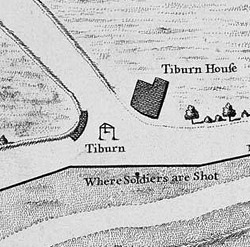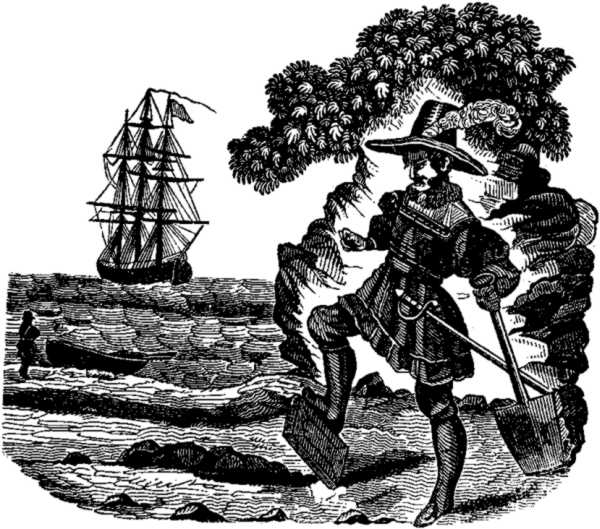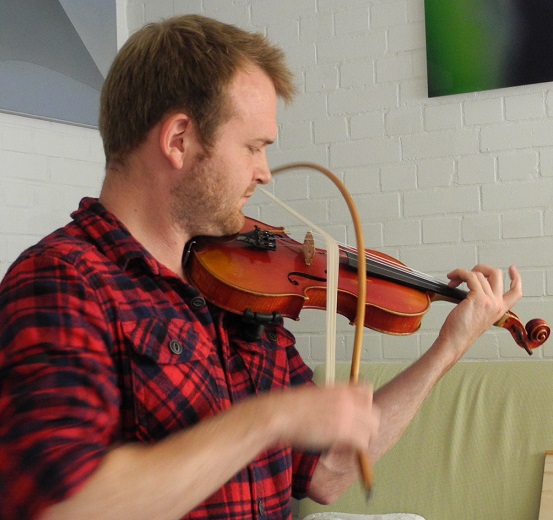|
Jack Hall (highwayman)
Jack Hall - was a criminal, who became a notorious highwayman. "Jack Hall" is a traditional British folksong dating from 1707. Story John or Jack Hall (d. 1707) was a criminal who, as a young boy, was sold to a chimney sweep for a guinea. In later life he became a notorious highwayman. In 1707 he was arrested along with Stephen Bunce and Dick Low for a burglary committed at the house of Captain Guyon, near Stepney. All three were convicted and hanged at Tyburn on 7 December 1707. A broadsheet of his Gallows Confessional was put to the melody of ''Captain Kidd'', previously executed for piracy in 1701. Jack Hall's song was made popular in the 1850s with the adaptation Sam Hall by English comic minstrel, C.W. Ross. Recordings Steeleye Span recorded ''Jack Hall'' on their album ''Tempted and Tried'' (1989). It was also released as B-side of the single ''The Fox'' (1990). The Group Sex Poets also recorded a slightly modified version of the song, which was re-interpreted by front man ... [...More Info...] [...Related Items...] OR: [Wikipedia] [Google] [Baidu] |
Chimney Sweep
A chimney sweep is a person who clears soot and creosote from chimneys. The chimney uses the pressure difference caused by a hot column of gas to create a draught and draw air over the hot coals or wood enabling continued combustion. Chimneys may be straight or contain many changes of direction. During normal operation, a layer of creosote builds up on the inside of the chimney, restricting the flow. The creosote can also catch fire, setting the chimney (and potentially the entire building) alight. The chimney must be swept to remove the soot. In Great Britain, master sweeps took apprentices, typically workhouse or orphan boys, and trained them to climb chimneys. In the German States, master sweeps belonged to trade guilds and did not use climbing boys. In Italy, Belgium, and France climbing boys were used. The occupation requires some dexterity, and carries health risks. History The Tudors in England had established the risk of chimneys and an ordnance was created in 1582 ... [...More Info...] [...Related Items...] OR: [Wikipedia] [Google] [Baidu] |
Guinea (British Coin)
The guinea (; commonly abbreviated gn., or gns. in plural) was a coin, minted in Great Britain between 1663 and 1814, that contained approximately one-quarter of an ounce of gold. The name came from the Guinea region in West Africa, from where much of the gold used to make the coins was sourced. It was the first English machine-struck gold coin, originally representing a value of 20 shillings in sterling specie, equal to one pound, but rises in the price of gold relative to silver caused the value of the guinea to increase, at times to as high as thirty shillings. From 1717 to 1816, its value was officially fixed at twenty-one shillings. In the Great Recoinage of 1816, the guinea was demonetised and the word "guinea" became a colloquial or specialised term. Although the coin itself no longer circulated, the term ''guinea'' survived as a unit of account in some fields. Notable usages included professional fees (medical, legal, etc.), which were often invoiced in guineas, and h ... [...More Info...] [...Related Items...] OR: [Wikipedia] [Google] [Baidu] |
Tyburn
Tyburn was a manor (estate) in the county of Middlesex, one of two which were served by the parish of Marylebone. The parish, probably therefore also the manor, was bounded by Roman roads to the west (modern Edgware Road) and south (modern Oxford Street), the junction of these was the site of the famous Tyburn Gallows (known colloquially as the "Tyburn Tree"), now occupied by Marble Arch. For this reason, for many centuries, the name Tyburn was synonymous with capital punishment, it having been the principal place for execution of London criminals and convicted traitors, including many religious martyrs. It was also known as 'God's Tribunal', in the 18th century. Tyburn took its name from the Tyburn Brook, a tributary of the River Westbourne. The name Tyburn, from Teo Bourne, means 'boundary stream',Gover, J. E. B., Allen Mawer and F. M. Stenton ''The Place-Names of Middlesex''. Nottingham: English Place-Name Society, The, 1942: 6. but Tyburn Brook should not be confused wit ... [...More Info...] [...Related Items...] OR: [Wikipedia] [Google] [Baidu] |
Captain Kidd (song)
"The Ballad of Captain Kidd" (or simply, "Captain Kidd") is an English song about Captain William Kidd, who was executed for piracy in London on May 23, 1701. It is listed as number 1900 in the Roud Folk Song Index. The song was printed in Britain in 1701, and it traveled to the colonies "almost immediately". Washington Irving's 1824 work ''Tales of a Traveller'' makes mention of the song: :"There 's a fine old song about him, all to the tune of — ::My name is Captain Kidd, ::As I sailed, as I sailed— :And then it tells all about how he gained the Devil's good graces by burying the Bible : :: I had the Bible in my hand, :: As I sailed, as I sailed, :: And I buried it in the sand :: As I sailed. — The song survived in the oral tradition long enough for it to be recorded from traditional singers. Bob Roberts of Dorset, England was recorded singing the song by Peter Kennedy in 1960, whilst Helen Creighton, Edith Fowke and Helen Hartness Flanders recorded several versio ... [...More Info...] [...Related Items...] OR: [Wikipedia] [Google] [Baidu] |
Sam Hall (song)
"Sam Hall" is an English language folk song about a unrepentant criminal condemned to death ( Roud Folk Song Index number 369) for robbing the rich to feed the poor. Prior to the mid-19th century it was called "Jack Hall", after an infamous English thief, who was hanged in 1707 at Tyburn. Jack Hall's parents sold him as a climbing boy for one guinea, which is why most versions of the song identify Sam or Jack Hall as a chimney sweep. History The Fresno State University website states that the printed collection ''Wit and Mirth, or Pills to Purge Melancholy'', dated to 1719, has a version of "Jack Hall". The Bodleian Library has a printed version called "Jack the Chimney Sweep", dated between 1819 and 1844. Prior to 1988, the song had been collected from about 18 singers in the oral tradition, limited to England and the United States and there had been only six sound recordings made. Comic performer W. G. Ross adapted one version in the 1840s and changed the name from " Jack ... [...More Info...] [...Related Items...] OR: [Wikipedia] [Google] [Baidu] |
Steeleye Span
Steeleye Span are a British folk rock band formed in 1969 in England by Fairport Convention bass player Ashley Hutchings and established London folk club duo Tim Hart and Maddy Prior. The band were part of the 1970s British folk revival, and were commercially successful in that period, with four Top 40 albums and two hit singles: "Gaudete" and "All Around My Hat (song), All Around My Hat". Steeleye Span have seen many personnel changes; Maddy Prior being the only remaining original member of the band. Their musical repertoire consists of mostly traditional songs with one or two instrumental tracks of jigs and/or reel (dance), reels added; the traditional songs often include some of the Child Ballads. In their later albums there has been an increased tendency to include music written by the band members, but they have never moved completely away from traditional music, which draws upon pan-British traditions. History Early years Steeleye Span began in late 1969, when London-born ... [...More Info...] [...Related Items...] OR: [Wikipedia] [Google] [Baidu] |
Sam Carter (musician)
Sam Carter is a British guitarist, singer and songwriter, originally from the English Midlands but more recently based in Sheffield. He has released four albums of mainly original material which fall loosely into the folk/roots category. Carter is the winner of the "Horizon" award for best newcomer at the BBC Radio 2 Folk Awards in 2010. Highly regarded as an instrumentalist, contemporary Jon Boden of Bellowhead described him as 'the finest English-style finger-picking guitarist of his generation, and former BBC Radio Two folk show presenter Mike Harding wrote that Carter was "one of the most gifted acoustic guitarists of his generation.". As a songwriter, Carter marries a traditionally English narrative style with elements of American gospel, shapenote, R&B and folk-rock has been described as an "impressively original" performer. Some commentators consider that Carter's guitar and vocal style is similar to that of noted British iconoclasts John Martyn and Roy Harper, whi ... [...More Info...] [...Related Items...] OR: [Wikipedia] [Google] [Baidu] |
Sam Sweeney
Sam Sweeney (born 27 February 1989 in Nottingham) is a multi-instrumental English folk musician. Career Sweeney was introduced to folk music as a child via his parents' record collection and taught himself to play traditional pieces by ear. He started playing the fiddle at age six, and first performed as a soloist at folk festivals in 2001. From 2002 to 2010, he was part of the East Midlands-based folk band Kerfuffle, playing fiddle, viola, and cajon, and singing. When Kerfuffle disbanded, Sweeney continued playing with accordion player and singer Hannah James as the duo Hannah James and Sam Sweeney. From 2008 to 2016, he became a member of the award-winning eleven-piece folk band Bellowhead, playing fiddle and English bagpipes, as a replacement for former member Giles Lewin. Sweeney played with Bellowhead until their final gig in May 2016 at Oxford Town Hall. He has toured with Jon Boden and the Remnant Kings, playing both drums and fiddle, sometimes simultaneously. He i ... [...More Info...] [...Related Items...] OR: [Wikipedia] [Google] [Baidu] |
Bellowhead
Bellowhead is an English contemporary folk band, active from 2004 to 2016, reforming in 2020. The eleven-piece act played traditional dance tunes, folk songs and shanties, with arrangements drawing inspiration from a wide range of musical styles and influences. The band included percussion and a four-piece brass section. Bellowhead's bandmembers played more than 20 instruments among them, whilst all performers provided vocals. Their third album, ''Hedonism'' (2010), is the highest selling independently released folk album of all time, having sold over 60,000 copies and earning the band a silver disk. The band parted after their final gig at Oxford Town Hall in May 2016. In 2020, the band reformed for a reunion concert and, as of 2022, are undertaking a reunion tour, visiting Portsmouth, Oxford, Leicester, Cambridge, London, Brighton, Southend-on-Sea, Ipswich, Bath, Plymouth, Cardiff, Birmingham, Newcastle-upon-Tyne, Nottingham, Harrogate, Liverpool, Sheffield and Manchester. ... [...More Info...] [...Related Items...] OR: [Wikipedia] [Google] [Baidu] |
Jools Holland
Julian Miles Holland, (born 24 January 1958) is an English pianist, bandleader, singer, composer and television presenter. He was an original member of the band Squeeze and has worked with many artists including Jayne County, Sting, Eric Clapton, Mark Knopfler, George Harrison, David Gilmour, Magazine, The The, Ringo Starr and Bono. From 1982 until 1987, he co-presented the Channel 4 music programme '' The Tube''. Since 1992, he has hosted '' Later... with Jools Holland'', a music-based show aired on BBC2, on which his annual show ''Hootenanny'' is based. Holland is a published author and appears on television shows besides his own and contributes to radio shows. In 2004 he collaborated with Tom Jones on an album of traditional R&B music. On BBC Radio 2 Holland also regularly hosts the weekly programme ''Jools Holland'', a mix of live and recorded music and general chat and features studio guests, along with members of his orchestra. Education Holland was educate ... [...More Info...] [...Related Items...] OR: [Wikipedia] [Google] [Baidu] |
English Folk Songs
The folk music of England is a tradition-based music which has existed since the later medieval period. It is often contrasted with courtly, classical and later commercial music. Folk music traditionally was preserved and passed on orally within communities, but print and subsequently audio recordings have since become the primary means of transmission. The term is used to refer both to English traditional music and music composed or delivered in a traditional style. There are distinct regional and local variations in content and style, particularly in areas more removed from the most prominent English cities, as in Northumbria, or the West Country. Cultural interchange and processes of migration mean that English folk music, although in many ways distinctive, has significant crossovers with the music of Scotland. When English communities migrated to the United States, Canada and Australia, they brought their folk traditions with them, and many of the songs were preserved by i ... [...More Info...] [...Related Items...] OR: [Wikipedia] [Google] [Baidu] |







.png)